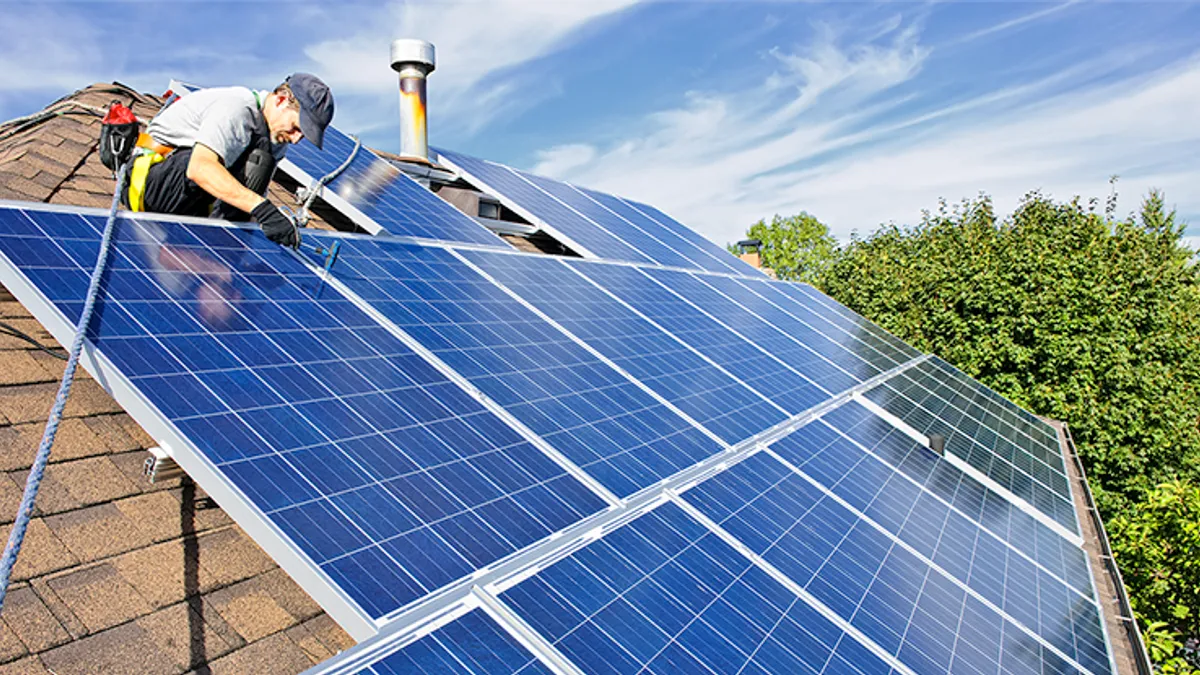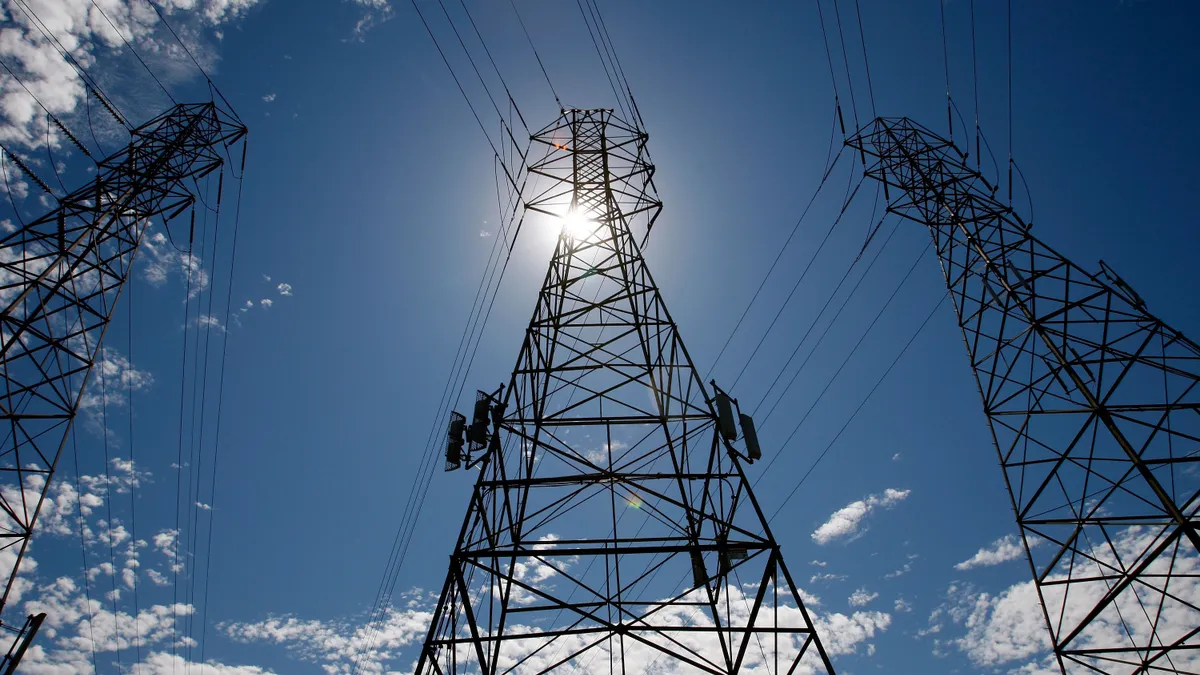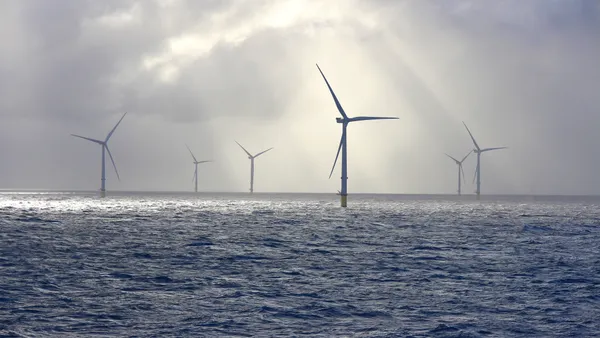Dive Brief:
- The board of South Carolina public utility Santee Cooper approved charges and incentives for solar users on Tuesday that include a rebate of $0.65/watt for residential and commercial-industrial purchasers of rooftop or community solar, a $4.40/kW monthly fixed fee for solar users (called a "standby fee"), and a set of credits for solar energy-generated electricity sent to its grid, the State reports.
- The utility set the rate to buy back excess solar energy from solar owners at the utility's avoided energy charge of $0.0388/kWh — less than half the retail net energy metering rate paid by the state’s investor-owned utilities, which is $0.1084/kWh. The first 500 customers who interconnect solar to the Santee Cooper grid will get an additional $0.03/kWh credit for three years.
- Solar advocates opposed the utility's standby fee for solar users, which they say will compromise the value proposition of rooftop solar enough to make solar leasing unworkable and may block any kind of rooftop solar growth in Santee Cooper’s service territory,
Dive Insight:
Santee Cooper's board said the package of charges and incentives is part of the utility's larger strategy to promote solar in its service territory.
"We've demonstrated our commitment to solar from the beginning," spokeswoman Mollie Gore told the State.
The board also approved an average 3.7% per kWh rate increase and a roughly $2 fixed fee increase from about $12 to $14 for all customers. The fixed fee aims to capture solar owners’ share of fixed infrastructure costs for “the 17% of the time they get their electricity from their solar," Gore told Utility Dive.
Solar advocates are not pleased with the additional charges.
Like the IOUs, Santee Cooper should comply with the state’s solar-enabling Act 236, South Carolina Coastal Conservation League Energy-Climate Director Hamilton Davis wrote in a recent editorial. The fixed fee to solar owners is based on the “flawed justification” that Santee Cooper can “charge you for using less power."
There could be a customer backlash against it, Davis said. And solar advocates may test it legally to determine if it unfairly discriminates against solar customers.
A similar solar-only fee from Wisconsin utility We Energies was rejected by a Circuit Court judge in October because its necessity had been inadequately substantiated.













